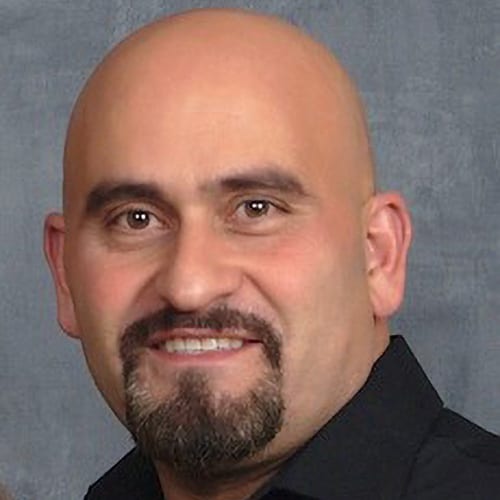

Joseph Naber OTR/L
Hometown: Danbury, CT
Specialty – or favorite OT challenge:
I enjoy wheelchair positioning, and contracture management of the upper body
When and how did you decide to become an OT, or were you born knowing?
I originally went to a trade school for Architecture then decided i would major in Construction Management, once I decided what college path I would take. One day while sitting in Construction Lab I decided to take a walk and past an auditorium filled with about 150 female students and only 2 male students. When I inquired what class that was, I was told it was the Occupational Therapy program. It was the first time I had ever heard of Occupational Therapy. I decided to do an observation at the hospital across the street. Back then, pre 9-11, pre Covid, you could call up and ask to do an observation and could come in the next day…no background check, finger printing etc…
After my observation I was sold that this is what I wanted my profession to be. While building something like a tall structure could be exciting, I thought building someone back up after an injury would be more challenging and even more exciting! When I tried to switch majors, I was told it would be hard and I was not given the seal of approval to do so. Well, like most young ambitious and rebellious 18-19 year-olds, I did it anyway. And here we are, almost 25+ years later, I am still happy I made the choice. Given how the Construction industry has grown since the early 90’s, do I regret my decision? No! Its shaped me into the individual I am today. Patients’ past experiences as well as rehabilitated experiences, are what makes Joseph Naber who he is
If you could offer one tip to people, based on your experiences as an OT, what would it be? As a young, healthy, energetic clinician, I like to educate my new and upcoming therapists as well as remind my senior colleagues, to always be compassionate, sympathetic, and understanding of their patients’ trivial times as well as family members trying times in dealing with their loved one’s illness. Unless you are in their situation, can you truly understand how difficult it is to do that one extra exercise, that one additional repetition, take that one last walk.




